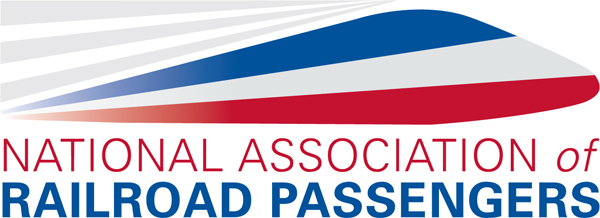Hotline #726-B
June 25, 1992
It seems unlikely that Amtrak will be struck tonight as a union spokesman had previously hinted. Amtrak's Night Owl will run tonight. Negotiations continue and the events on Capitol Hill make it politically unwise for labor to start a new strike tonight. Amtrak continues to run its Northeast Corridor and Chicago-Milwaukee services, the latter because Soo Line is one of the few railroads still operating. However, the Empire Builder is not running and, even though Central Vermont is running, the Montrealer is not. The Montrealer would be one of the first overnight trains to resume operation after Congress acts.
Amtrak decided this morning to cancel all reservations on long-distance trains that originate tomorrow. Amtrak will make a decision about June 27 trains tomorrow morning, but as a practical matter, even if Congress finishes action tonight, some long-distance trains probably would not originate June 27 and perhaps even June 28 for logistical reasons.
This afternoon, the House Energy and Commerce Transportation Subcommittee passed a bill that would end the strike/lock-out, provide for a cooling-off period -- apparently 20 or 38 days -- and then baseball-style binding arbitration, meaning arbitrators must choose one side's offer or the other rather than come down in the middle. This is designed to encourage parties to make the most reasonable offers. Labor is opposing the binding arbitration provision. The subcommittee vote was 14-3, with Sikorski (Minn.), Collins (Ill.), and Richardson (N.Mex.) opposing.
At about 6:00 pm, the full Energy and Commerce Committee approved the bill, 37-5. The three people just mentioned with Bilirakis (Fla.) and Kostmayer (Pa.) opposed it. Bilirakis was the only Republican in opposition. Next, the bill goes to the Rules Committee, then the House floor this evening. At a luncheon today, Secretary Card spoke optimistically about the chances of Senate action tonight as well, but this may not be realistic given the strong feelings of many Senate Democrats against binding arbitration. NARP fears that without binding arbitration, there is a rerun of this absurd situation when the cooling-off period ends. If you have a Democratic Senator, you may which to encourage him or her to vote for binding arbitration. Some key Senators critical of binding arbitration are Labor and Human Resources Committee Chairman Ted Kennedy (Mass.) and his Labor Subcommittee Chairman Howard Metzenbaum (Ohio). Others who particularly need to hear support for binding arbitration are Mitchell (Me.), Wellstone (Minn.), Burdick (N.Dak.), and Conrad (Mont.). Many Democrats are nervous about casting an "anti-labor" vote just before their national convention. However, rail labor's power does not stem from the ability to conduct big, long strikes -- there has not been one in recent decades. The power comes from the fact that the structure of the railroad industry with private ownership of the tracks offers protection against non-union operations -- protection that aviation and trucking industry people do not enjoy. Given the history of Caterpillar, Eastern Airlines, and the old Greyhound, it's not even clear that a protracted strike is a useful tool for labor anymore.
The Machinists struck CSX early yesterday and other big freight railroads responded with a lockout. Yesterday, House Energy and Commerce held an all-day-and-evening hearing at which some Democrats -- especially Slattery and Eckart -- were very angry at the railroads for, as they said, transforming a regional problem into a national one. And Transportation Secretary Andrew Card -- who urged Congress to act -- seemingly didn't help matters by refusing to admit which lines were struck and which locked out.
On June 23, Amtrak reached tentative agreements with three more unions -- the Dispatchers, Electricians, and Carmen. If these agreements are ratified, 82% of Amtrak's unionized workers would have new contracts.
